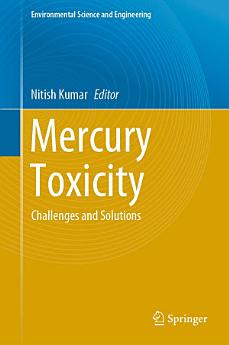Mercury Toxicity: Challenges and Solutions
Учкай маалымат
Both anthropogenic activities and natural processes cause the release of mercury into different spheres of the environment resulting in severe adverse impacts. Increased anthropogenic discharge of mercury leads to disturbance in its natural biogeochemical cycle, which results in unenviable diseases and hazardous health effects. Mercury pollution is responsible for causing neurobehavioral, kidney, heart, gastrointestinal, liver, and other diseases. Many published works about the impact of mercury on health are also available worldwide; however, there is no complete understanding available on toxicological studies of mercury that covers the broader spectrum of findings ranging from sources of exposure to mercury toxicity to its remediation strategies.
This book brings together a diverse group of environmental science, sustainability, and health researchers to address the challenges posed by global mass poisoning caused by mercury contamination. The book also proposes solutions to contamination through multi-disciplinary approaches.
The book contains three sections. The first part describes the different sources and distribution of mercury in soil and plant ecosystems. The second part explains the health risks linked to mercury toxicity. The third part addresses sustainable mercury toxicity mitigation strategies and the potential applications of recent technology in providing solutions. This book is a valuable resource to students, academics, researchers, and environmental professionals working in the field of mercury contamination.
Автор жөнүндө
Dr. Nitish Kumar is a senior assistant professor at the Department of Biotechnology, Central University of South Bihar, India. He completed his doctoral research at the Council of Scientific & Industrial Research (CSIR)–Central Salt & Marine Chemicals Research Institute, India. He has the research and teaching experience of more than 12 years in the field of plant and microbial biotechnology, and heavy metal bioremediation. He has published more than 70 research articles in international and national journals and more than 20 book chapters and 7 books with Springer and Taylor & Francis. Dr. Kumar was a recipient of the Young Scientist Award from the Science and Engineering Research Board (SERB) in 2014. He has received many awards and fellowships and acquired projects from various organizations.








